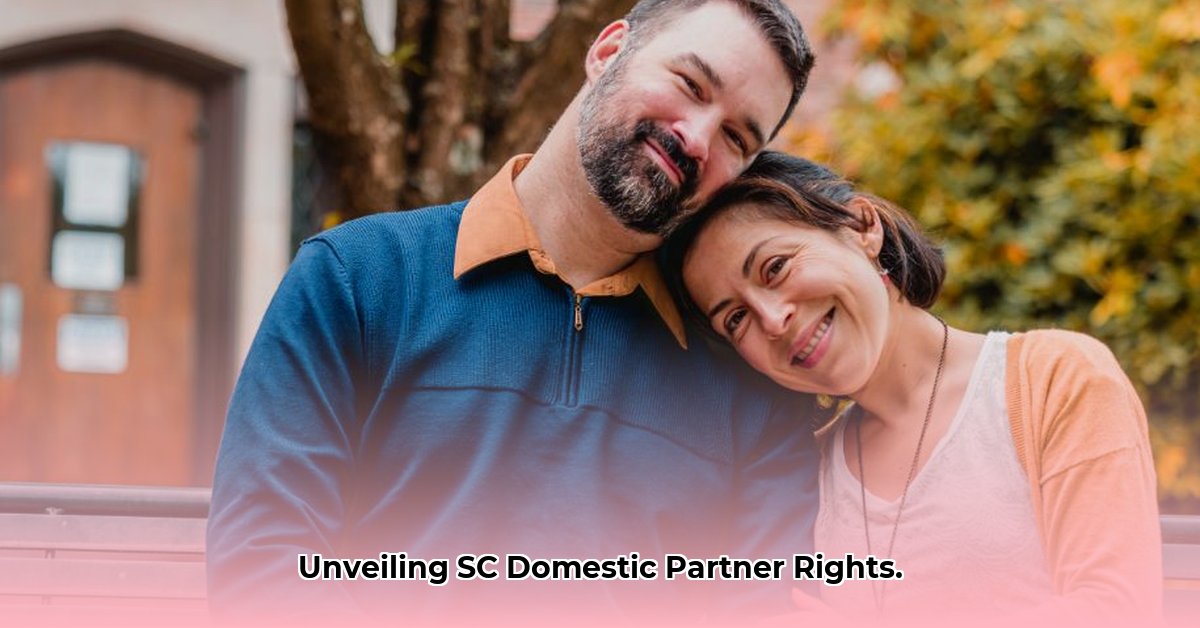
South Carolina doesn't legally recognize domestic partnerships. This means unmarried couples lack the automatic legal protections afforded to married couples. This guide clarifies your rights and options, offering a practical path forward. Understanding these complexities is crucial for protecting your interests and ensuring a secure future. For further information on wills and divorce decrees, see this helpful resource.
Understanding the Legal Landscape for Unmarried Couples in South Carolina
Unlike many other states, South Carolina does not have a legal framework for domestic partnerships. This lack of official recognition significantly impacts unmarried couples in several key areas, including healthcare decisions, asset inheritance, and access to federal benefits. For instance, if one partner becomes incapacitated, the other might not have the legal authority to make healthcare decisions. Similarly, inheriting assets after a partner's death could become a protracted legal battle without proper planning. Many federal benefits, such as Social Security survivor benefits, are typically unavailable to unmarried partners. This is true even if the couple shares finances and acts as a family unit.
Do you understand the significant legal limitations placed upon unmarried couples in South Carolina? This lack of legal recognition poses substantial risks.
The Absence of Common-Law Marriage
Adding to the complexity, South Carolina no longer recognizes new common-law marriages. While common-law marriages formed before July 24, 2019, remain valid, proving the existence of such a marriage requires substantial evidence and legal expertise. This means that simply living together for an extended period does not automatically grant legal protections equivalent to marriage.
Protecting Your Rights: A Practical Step-by-Step Guide
While South Carolina doesn't offer domestic partnerships, proactive estate planning can help protect your rights. The following steps provide a framework. Remember, consulting a South Carolina attorney specializing in estate planning is the crucial first step.
Seek Legal Counsel: Consult an experienced estate planning attorney in South Carolina. They can provide tailored advice and create legally sound documents that reflect your specific situation. This is the foundation of protecting your legal rights and ensuring your wishes are respected.
Meticulous Documentation: Maintain comprehensive records of jointly held assets, property ownership, and financial agreements. This meticulous documentation serves as critical evidence should legal disputes arise. Keeping organized records is vital for safeguarding your interests.
Healthcare Proxies and Powers of Attorney: These legal documents empower your partner to make healthcare and financial decisions on your behalf if you become incapacitated. Without the automatic legal protections of marriage, these documents are essential for protecting your wellbeing.
Regular Review and Updates: Regularly review and update your estate plan to reflect changing circumstances. Life evolves, and your legal documents should adapt to your changing needs and wishes, ensuring they remain effective and current.
Weighing Your Options
While marriage provides the broadest legal protections, it might not be suitable for every couple. Understanding the limitations of alternative approaches is vital for making an informed decision. A thorough understanding of the legal landscape and available options is crucial.
| Approach | Pros | Cons |
|---|---|---|
| Marriage | Comprehensive legal protection, access to all marital benefits | May not align with personal beliefs or circumstances for some individuals |
| Comprehensive Estate Planning | Safeguards assets, addresses healthcare decisions, and handles inheritance | Requires expert legal guidance, ongoing maintenance, and doesn't offer all benefits of formal marriage |
Key Takeaways: Protecting Your Future
The lack of domestic partnership recognition in South Carolina underscores the necessity of proactive planning. While legal recognition is unavailable, you can take steps to mitigate potential legal risks. Remember that:
- South Carolina's legal framework for unmarried couples presents significant challenges.
- Proactive estate planning is crucial for protecting your rights and future.
- Consulting legal counsel is vital for creating legally sound documents.
- Ongoing awareness of legal interpretations and potential future legislative changes is necessary.
Note: This article provides general information and should not be considered legal advice. Always consult with a qualified South Carolina attorney for personalized guidance on your specific situation.